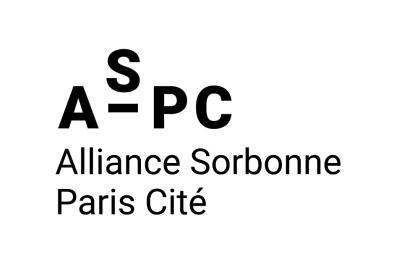Inalco, founding member of the Sorbonne Paris Cité Alliance

For Inalco, the pooling of considerable strengths in the field of languages and civilizations, the disciplinary and areal complementarities with other establishments, and the broad disciplinary spectrum present at ASPC open up stimulating prospects for teaching and research. It is also an opportunity to participate in the rise of certain sectors for which pooling the resources of the establishments enables a high level of service to be achieved, and to ensure a sustained international presence.
What is the ASPC?
The ASPC comprises Université de Paris, Université Sorbonne Paris Nord, Sciences Po, and Inalco as founding members, Ined as partner member and Ensa Paris-Val de Seine as associate member. These 6 entities were formerly members of USPC, dissolved on 01/01/2020. The ASPC territorial coordination agreement was approved by the arrêté du 24/12/2020 of the ministers of Esri, culture and solidarity and health and published in the Journal officiel du 07/01/2021.
According to the preamble to the agreement, this grouping thus affirms its shared values, and expresses a willingness to continue working together around shared objectives :
- "to guarantee the quality of the research produced in all the major scientific fields covered;
- to promote an innovative and ambitious approach to training policy, guaranteeing equal opportunities;
- to promote student success and fulfillment;
- to enrich campus life;
- to strengthen the Sorbonne Paris Cité Alliance's foothold in its socio-economic environment, by being a major player in the dissemination of knowledge. "
The Members' Council is made up of the presidents and directors of the institutions that are members of the agreement, or their representatives. On the proposal of one of its members, the board may invite outside personalities to take part in meetings, depending on the agenda.
The PHAC's resources
The PHAC's board of members sets an annual membership fee after assessing the resources required to achieve its objectives. "Independently of the resources allocated to their own teams and services, the parties may also decide to pool certain additional resources according to their degree of participation in Sorbonne Paris Cité's actions."
Other new sources of funding may be added, subject to approval by the members' council. "The parties may, individually or collectively, seek additional funding from third parties, including, but not limited to, grants from French and European public authorities, private organizations, the future investment program, responses to calls for projects, etc. "
Intellectual property provisions
Each partner retains ownership of the software and knowledge, whether patented or not, which it possesses prior to the entry into force of this agreement, or which it obtains outside the framework of this agreement," the agreement states. Beyond agreements established with third parties, the entities own their own results acquired by its research teams independently of collaborations with partners.
Finally, "each of the parties freely ensures the protection of its own results obtained within the framework of SPC" and "may use free of charge the results, knowledge and software, whether patentable or not, of the actions and work carried out within the framework of the present agreement for its own research and training needs".
Information from article no. 204423 from News Tank High & Research, "Alliance Sorbonne Paris Cité : la convention de coordination territoriale approuvée par arrêté", January 7, 2021